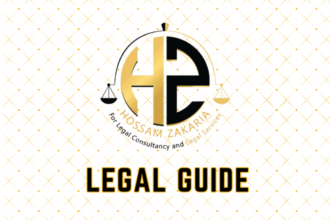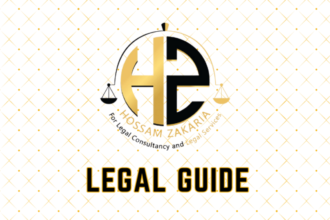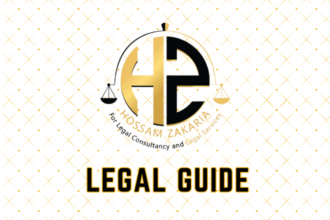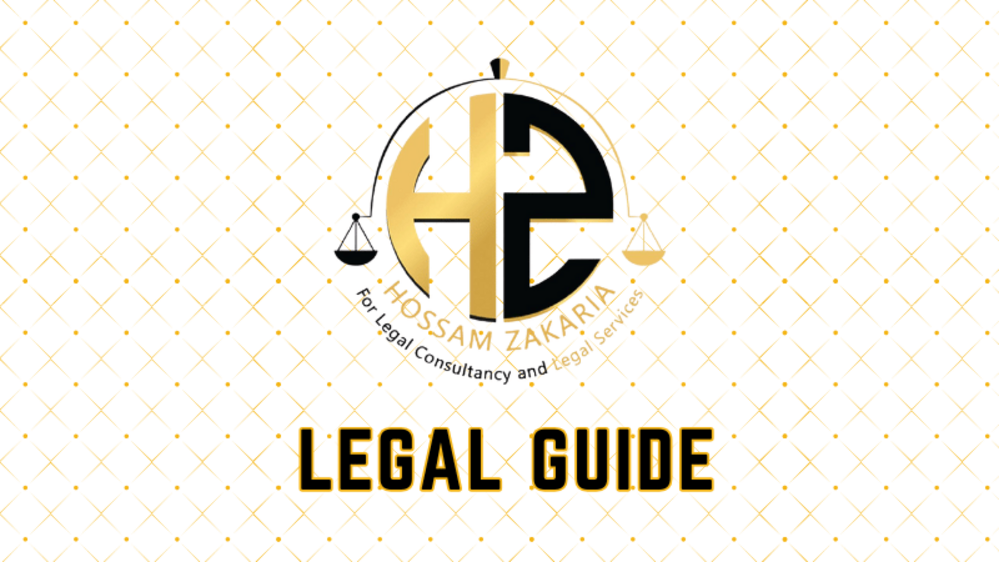Introduction
As artificial intelligence (AI) technologies accelerate their integration into business models across Qatar and the wider GCC, the question of legal accountability and liability has never been more pressing. The recent evolution of Qatar’s legal frameworks—particularly in light of the UAE’s own 2025 legal updates—mandates a careful, critical approach to how businesses adopt, deploy, and monitor AI-driven tools. For legal advisory teams, executives, and compliance officers operating in or with the Qatari market, understanding the implications of AI regulations is no longer optional but a core component of strategic risk management and operational excellence.
This article delivers a comprehensive, consultancy-grade analysis of AI accountability and liability under Qatar’s current legal frameworks, with a focus on actionable guidance for in-house legal departments and leadership teams. Drawing comparative insights from UAE Federal Decrees, Ministry of Justice guidance, and best practices, readers will find both legal clarity and practical direction for structuring compliant, forward-thinking AI adoption strategies.
Table of Contents
- AI Legal Landscape in Qatar: An Evolving Framework
- Key Regulations and Provisions on AI Accountability and Liability
- Legal Compliance Strategies for Business Operations
- Comparing Old and New Laws: What Has Changed?
- Case Studies and Hypothetical Scenarios
- Risks of Non-Compliance and Enforcement Trends
- Practical Steps for Businesses and Legal Teams
- Conclusion and Forward Strategy
AI Legal Landscape in Qatar: An Evolving Framework
Current State of AI Regulation
Qatar’s ambition to emerge as a digital leader has led to the adoption of a multilayered digital legal strategy, much influenced by global trends and the rigorous standards set by UAE’s legislative progression. The Qatar National AI Strategy (2019), crafted by the Ministry of Transport and Communications, provides the blueprint for responsible AI, emphasizing both innovation and protection.
Currently, Qatar does not have a single comprehensive AI law like the EU’s Artificial Intelligence Act. Instead, it steers AI accountability through:
- Qatar Data Protection Law (Law No. 13 of 2016) – Regulating processing of personal data and automated decision-making.
- Cybercrime Prevention Law (Law No. 14 of 2014) – Addressing misuse of digital and AI technologies in criminal contexts.
- ICT Regulatory Authority Guidance – Sector-specific guidelines for the deployment of AI in regulated industries.
- Corporate Governance Codes – Imposing board-level responsibilities on emerging technologies, including AI risk oversight.
The absence of a unified federal law places increased importance on cross-referencing sectorial rules, international standards (e.g., ISO/IEC 23894:2023 for AI Risk Management), and complementary local regulations. For entities active in both Qatar and the UAE, awareness of parallel obligations, especially under forthcoming 2025 UAE legal updates, is vital.
Key Regulations and Provisions on AI Accountability and Liability
1. Qatar Data Protection Law and AI
AI systems, particularly those leveraging big data and personal profiling, implicate several core requirements under the Data Protection Law:
- Lawful Purpose: Personal data processing must be specified, explicit, and legitimate. AI algorithms that use personal or sensitive data must meet strict consent and notification standards.
- Transparency and Automated Decision-Making: Article 9(1) requires data subjects to be informed about logic, significance, and envisaged consequences when automated decision systems are used—directly aligning with AI explainability mandates emerging in global frameworks.
- Accountability Obligations: Data controllers must document the rationale behind AI-enabled automated processes and ensure ongoing risk assessments.
2. Cybercrime Law: Criminal Responsibility and AI
Qatar’s cybercrime statute establishes both organizational and individual liabilities for digital misconduct—expanding, by interpretation, to the use/misuse of AI systems that result in unauthorized access, fraud, or compromise of critical systems.
For example, Article 4 criminalizes unauthorized data access, while Article 8 covers the diffusion of false or misleading information using digital tools. If an AI tool is programmed—or negligently supervised—to disseminate illegal content, the company and its senior responsible officers may both be liable.
3. Sector-Specific and Board-Level Duties
- Financial Sector: Qatar Central Bank (QCB) has issued technology risk guidelines mandating robust AI monitoring for banks and insurers.
- Telecoms and Healthcare: Custom protocols from sector regulators require AI systems to comply with information security, record retention, and notification processes.
- Corporate Governance Codes: Qatar Financial Centre (QFC) and local exchanges advise boards explicitly to include emerging tech risks—including AI errors—in annual risk audits.
4. Cross-Border Considerations
Given the cross-jurisdictional nature of digital businesses, Qatari companies with UAE or global operations must note:
- UAE Federal Decree-Law No. 45 of 2021 (Personal Data Protection Law) – Contains more explicit requirements regarding automated decision-making and AI profiling, likely to influence future Qatari reforms.
- EU General Data Protection Regulation (GDPR) – Often adopted as a gold standard, especially for entities processing European data in Qatar.
Legal Compliance Strategies for Business Operations
Fundamental Steps for AI-Driven Compliance
- Risk Assessment: Conduct upfront and continual risk analyses before and during AI system deployment, addressing data privacy, fairness, bias, and explainability.
- Documentation and Auditing: Maintain detailed logs of AI decision-making rationales, review outcomes of automated actions, and keep transparent audit trails.
- Policy Updates: Update internal data privacy, IT, procurement, and HR policies to explicitly address AI-specific processes, rights, and escalation pathways.
- Training: Provide targeted training for employees, especially at the management and supervisory levels, on AI accountability and incident reporting.
- Incident Response Plan: Develop AI-specific incident response protocols, including breach notification and corrective measures, in line with both Qatari and relevant UAE requirements.
Professional Consultancy Insight
For corporates, the focus should no longer only be on technical compliance, but on embedding a documented, repeatable approach to AI risk governance. Legal teams should ensure that contracts with AI vendors include compensation, liability, and audit rights, and that due diligence is performed regarding AI system origin and performance guarantees.
Suggested Visual: Compliance Checklist Table
| Compliance Step | Qatar Law Reference | Priority for UAE-Connected Entities |
|---|---|---|
| Data Processing Consent Management | Law No. 13/2016, Ch. 2 | High (align with UAE Law No. 45/2021) |
| Automated Decisions Documentation | Law No. 13/2016, Art. 9(1) | Medium |
| Board-Level Tech Risk Review | QFC Corporate Governance Principle 1 | High |
| AI-Specific Incident Response | Law No. 14/2014, Art. 23 | High (coordinate cross-border) |
Comparing Old and New Laws: What Has Changed?
Comparative Overview: Evolution in Liability Standards
| Regulatory Category | Old Standard (Pre-2019) | Current/Proposed Standard (2023-2025) |
|---|---|---|
| Accountability for Automated Decisions | No explicit provision; general data law applies | Direct obligations to inform and explain AI output impact |
| Board Responsibility for Tech Risks | Implicit only in general duty of care | Mandatory board review of digital and AI risks; annual reporting required |
| Cross-Border Data Transfers | Minimal regulatory discussion | Stringent controls following UAE and EU standards |
| Penalties for AI Incidents | Covered under generic cyber or tort provisions | Potential for higher civil and reputational exposure, board liability |
Analysis and Insights
The trajectory is clear: Qatar’s legal and regulatory regime is rapidly hardening toward more explicit, prescriptive AI accountability—mirroring, and sometimes following, the robust models introduced by UAE law. Entities that previously operated on generic IT compliance now face direct, enforceable standards specific to AI.
Case Studies and Hypothetical Scenarios
Case Study 1: AI in Financial Services
Scenario: A major bank in Qatar launches an AI-driven credit scoring system. An error in the algorithm leads to wrongful denial of credit to a category of applicants.
- Legal Issue: Lack of transparency violated Law No. 13/2016 on automated decision notification; possible discrimination under sectoral rules.
- Action: Investigations triggered by customer complaints led to QCB intervening. The bank was required to recalibrate the algorithm, notify those affected, and report corrective measures.
- Lesson: Boards must demand periodic audits and ensure explainable AI frameworks are in place.
Case Study 2: AI-Enabled Marketing and Consent
Scenario: An e-commerce platform uses AI-based customer profiling for targeted marketing but fails to refresh data subject consent after privacy policy updates.
- Legal Issue: Contravention of consent and transparency mandates in Law No. 13 of 2016.
- Risk: Regulatory sanctions and negative press due to privacy breach.
- Remedy: Introduce automated consent tracking and regular policy reviews.
Hypothetical: Cross-Border AI Service Provider
A Qatar-based software provider offers AI-powered HR analytics to UAE clients. A technical error exposes employee data, triggering security incident rules in both jurisdictions. Here, joint legal assessments—covering both Law No. 13/2016 (Qatar) and UAE’s Federal Decree-Law No. 45 of 2021—are mandatory. Non-compliance in either market could lead to double penalties and cross-border enforcement complications.
Suggested Visual: Penalty Comparison Chart
| Breach | Qatar Penalties (Law No. 13/2016 or No. 14/2014) | UAE Penalties (Federal Decree-Law No. 45/2021) |
|---|---|---|
| Unauthorized Automated Profiling | Up to QAR 1 million, plus corrective orders | Substantial administrative fines, business suspension risk |
| Failure to Notify on Incidents | Regulatory warning, potential license restriction | Mandatory reporting, public naming, higher fines |
Risks of Non-Compliance and Enforcement Trends
1. Regulatory Sanctions
Recent enforcement actions indicate a clear move to hold both organizations and individual executives to account for AI misuse or negligent oversight:
- Fines and Corrective Orders: Non-compliance with AI transparency or data protection leads to escalating financial penalties and mandatory remedial actions.
- Reputational Harm: Publicized investigations—now routinely announced by the Ministry of Transport and Communications—can inflict lasting brand damage, especially for consumer-facing brands.
- Directorial Liability: Company directors and compliance officers may face personal liability where failures can be traced to boardroom neglect or absence of adequate AI risk controls.
2. Litigation and Civil Exposure
Individuals harmed by AI-driven decisions or data breaches are increasingly asserting claims for compensation. Given ongoing legal reform, even in the absence of precedential AI judgments, courts now expect greater diligence from organizations deploying advanced digital tools.
3. International Compliance Imperative
Qatar-based multinationals must be alert to extraterritorial risks—in particular, UAE’s and EU’s evolving requirements on data subject rights and automated processing. Failure to map and comply with these can result in interstate regulatory cooperation and cross-border enforcement actions—especially as GCC data-sharing and joint investigation models expand.
Practical Steps for Businesses and Legal Teams
A Model AI Compliance Framework
- Governance Structure: Form an AI risk and ethics subcommittee with a direct reporting line to the board.
- AI Inventory: Keep a live registry of all AI tools in use, their data sources, purpose, and risk level.
- Policy Alignment: Harmonize Qatar, UAE, and (where applicable) EU compliance requirements across all documentation and operational procedures.
- Third-Party Due Diligence: Vet vendors and contractors for AI risk management, especially for critical functions (e.g., HR, credit, marketing).
- Ongoing Training and Culture: Foster a compliance-first culture through scenario-based workshops, real-world case study reviews, and regular refresher training.
- Continuous Review: Establish periodic system and policy reviews, benchmarking performance against latest Ministry of Justice advisories and international standards (e.g., ISO/IEC 23894:2023).
Suggested Visual: AI Governance Process Flow Diagram
(Recommend an infographic illustrating steps from AI tool identification, risk assessment, implementation approval, monitoring, and incident response)
Conclusion and Forward Strategy
Qatar’s position at the crossroads of regional AI adoption and global technology governance trends presents both opportunity and challenge. As the legal landscape tightens around AI accountability and liability, proactive risk management and robust legal compliance strategies are mission-critical for all businesses, especially those with executive, cross-border, or regulated roles. Drawing lessons from UAE’s own legal modernization, Qatari organizations must now adopt forward-leaning compliance postures, emphasizing transparent AI operations, enhanced board oversight, and ongoing adaptation to local and regional law.
Looking to 2025 and beyond, advisory teams should prepare not only for further legislative evolution but for heightened regulatory scrutiny and stakeholder expectations. The winners in this environment will be those who treat AI legal compliance as a cornerstone of both innovation and trust.
For personalized consultancy or to schedule a robust AI compliance audit, contact our UAE-based team of legal technology specialists today.



